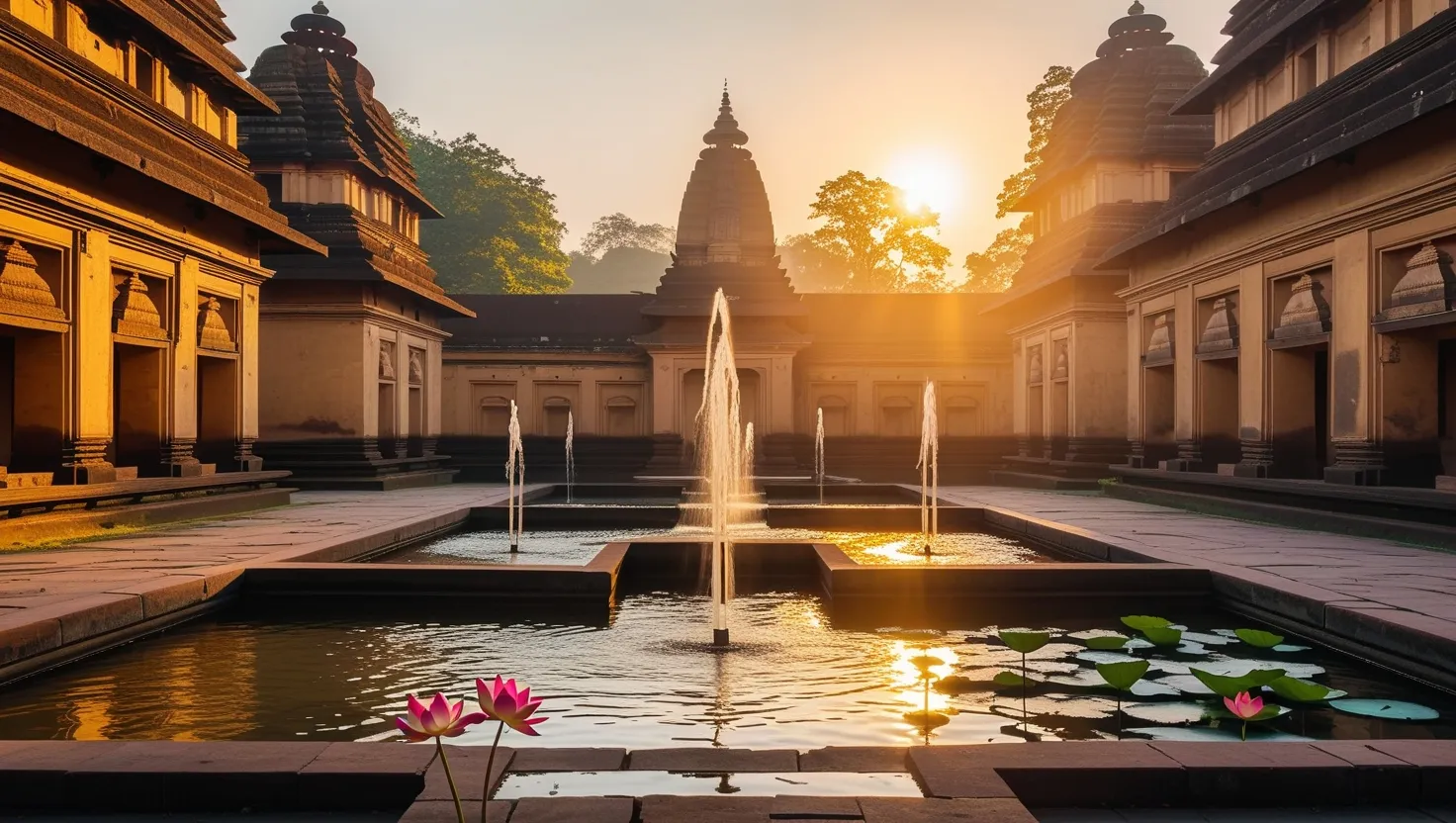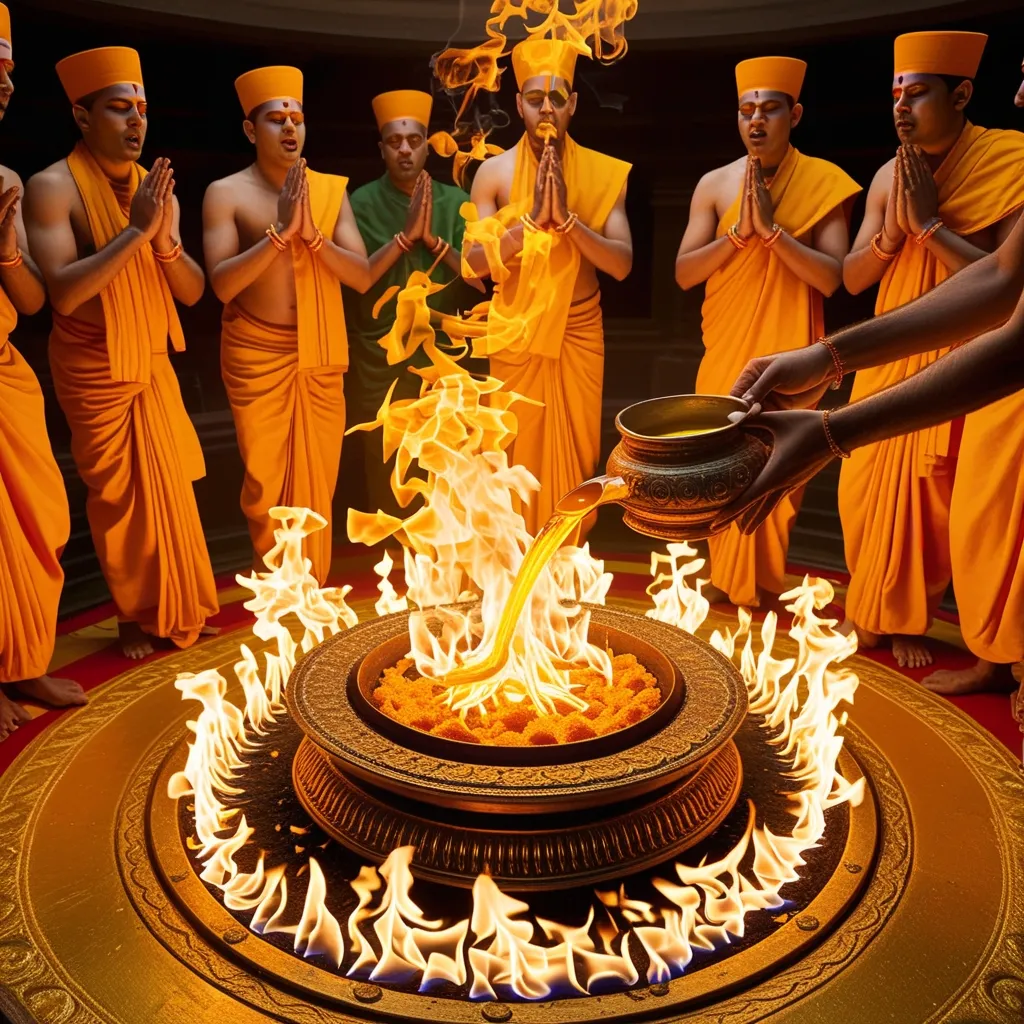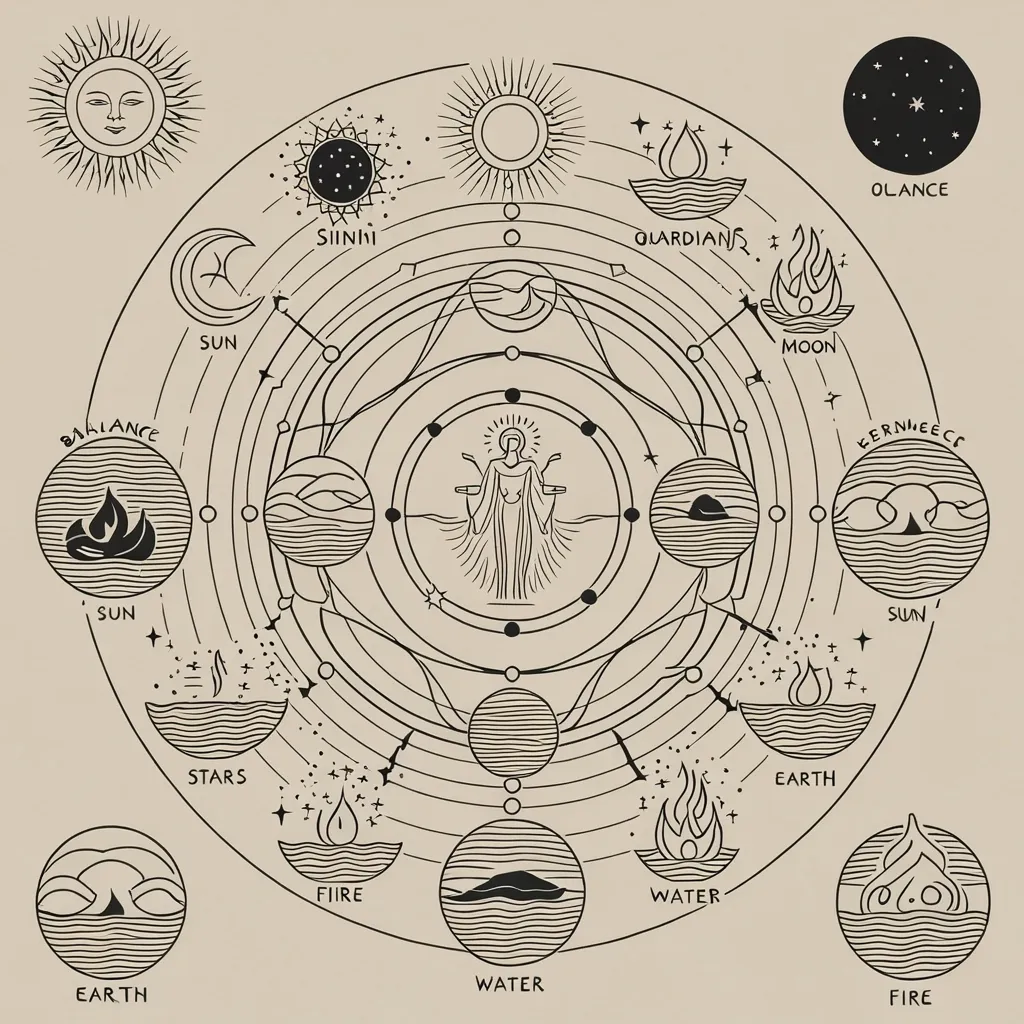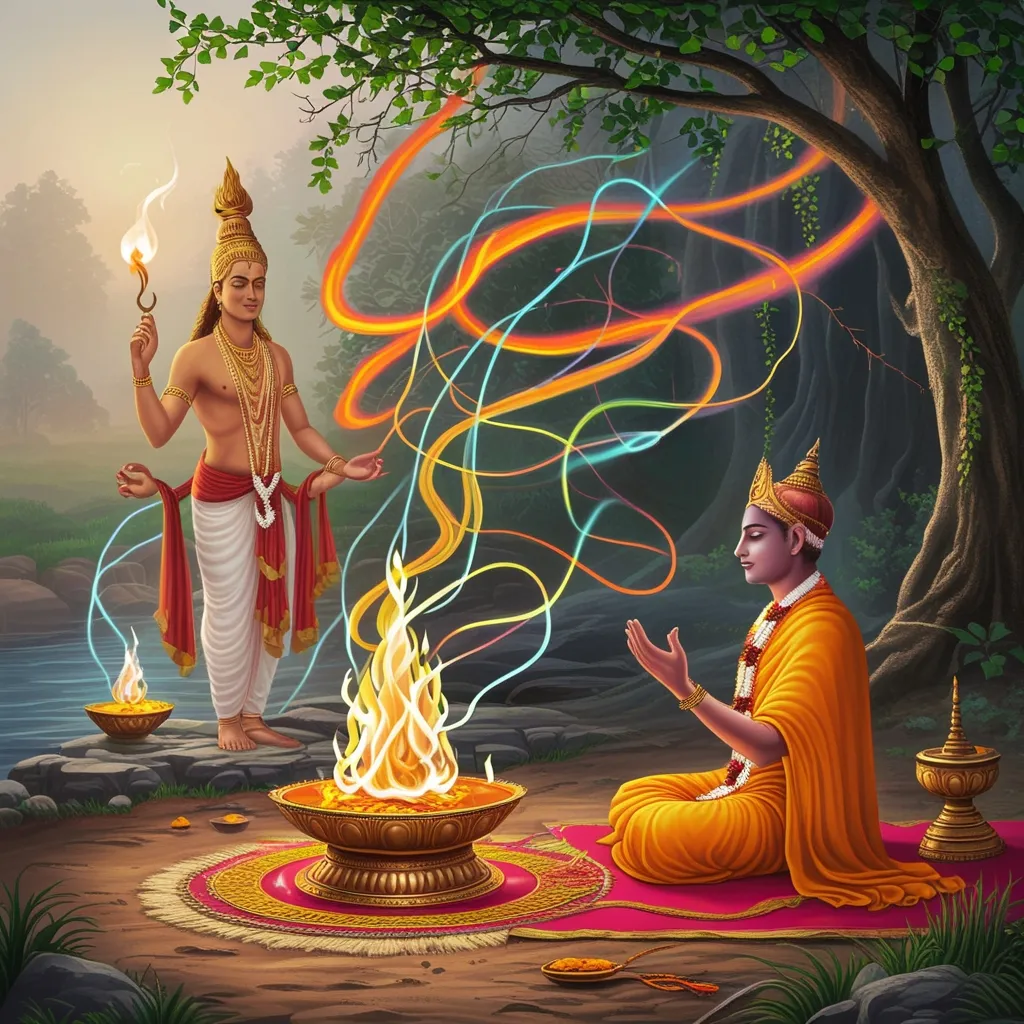In the vast and intricate world of Hinduism, the concept of Vidhi stands as a cornerstone of Vedic ritual philosophy. Vidhi, or the principle of ritual injunction, is more than just a set of instructions; it is a profound philosophical framework that guides the performance of sacred acts and aligns human life with the cosmic order.
To understand Vidhi, we must delve into the Mimamsa philosophy, which is deeply rooted in the Vedas. Mimamsa, meaning “reflection” or “investigation,” provides a philosophical justification for the Vedic rituals. It argues that performing these rituals is essential for understanding one’s true self (Atma) and ultimately achieving liberation (Moksha). The Mimamsa philosophy, as articulated by Jaimini and later scholars like Kumarila, emphasizes that rituals are not merely mechanical actions but are integral to spiritual growth and self-realization.
At the heart of Vidhi are the prescriptive rules and injunctions found in the Vedas. These rules guide ritual actions and ethical conduct, ensuring that every act is performed with precision and purpose. Vidhi is not just about following rules; it is about understanding the underlying cause and effect in both the material and spiritual realms. For instance, in Vedic rituals, the use of specific materials and the sequence of actions are designed to leverage the inherent properties of these materials to achieve specific goals, whether worldly or spiritual.
One of the key aspects of Vidhi is the distinction between different types of injunctions. There are positive mandatory commands (Vidhi) and negative mandatory commands (Nishedha). Vidhi tells us what ought to be done, while Nishedha specifies what should not be done. These commands are not arbitrary but are designed to ensure that the rituals are performed in a way that aligns with the cosmic order. For example, in the performance of a ritual like the Shodashopachara Puja, each step is meticulously outlined, from inviting the deity into one’s home to offering various forms of worship such as flowers, incense, light, and food. Each of these steps, known as the Pancha Upachara, corresponds to one of the five senses, engaging the devotee fully in the act of worship.
The concept of Vidhi also extends to the educational and teacher-student relationship. It emphasizes the quality of attentiveness and care that should be present in both the teacher and the pupil. This aspect highlights the holistic nature of Vidhi, which is not limited to ritual practices but also influences other aspects of life, such as learning and personal development.
In Shaivism, Vidhi pertains to rituals that guide aspirants towards merit and spiritual progress. These rituals are designed to help individuals accumulate spiritual merit and move closer to their spiritual goals. The Dharmashastra, a key text in Hindu law and ethics, also underscores the importance of Vidhi in rites and sacrificial practices, detailing the rules for the distribution of sacrificial fees among priests.
The performance of Vedic rituals, guided by Vidhi, involves a complex interplay of actions, materials, and intentions. The Brāhmaṇas, a layer of Vedic texts, contain detailed instructions on the performance of these rituals, including the recitation of mantras, the use of specific materials, and the execution of various ritual acts. For instance, in the ritual of the new moon (amavasya), offerings are made to the ancestors before those to the gods, reflecting a deeper understanding of the cosmic balance and the interconnectedness of all beings.
Vidhi is also closely linked with the concept of Dharma, or righteous living. It provides a framework for understanding one’s duties and responsibilities, not just in the context of rituals but in everyday life. By adhering to Vidhi, individuals can ensure that their actions are in harmony with the universal principles, leading to a more balanced and purposeful life.
The power of Vidhi lies in its ability to transform the performer through the ritual actions. In Vedic rituals, the sacrificer is not just an external actor but is directly affected and transformed by the actions performed. This transformation is not limited to the individual but also impacts the community and the cosmos at large. The rituals, therefore, are not just personal acts but contribute to the maintenance of the cosmic order.
Understanding Vidhi offers fresh insights into the nature of duty, the power of intentional action, and the intricate relationship between human effort and divine grace. It shows that rituals are not mere traditions but a scientific approach to harmonizing individual life with universal principles. By infusing our daily actions with the principles of Vidhi, we can live a more purposeful and aligned life.
In essence, Vidhi is a gateway to understanding the deeper philosophical underpinnings of Vedic rituals. It is a call to reflect on our actions, to understand the cause and effect of our deeds, and to align our lives with the cosmic order. Whether you are a student of Indian philosophy, a spiritual practitioner, or simply someone curious about living a meaningful life, exploring Vidhi can open new avenues of understanding and guide you towards a life of greater purpose and harmony.






